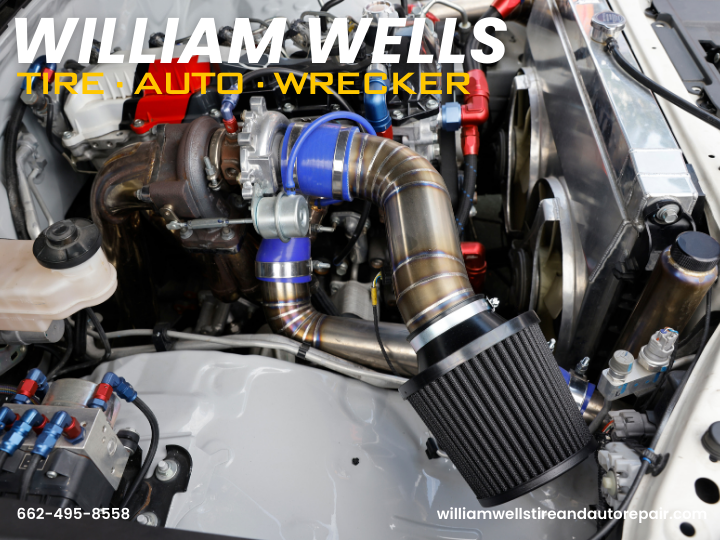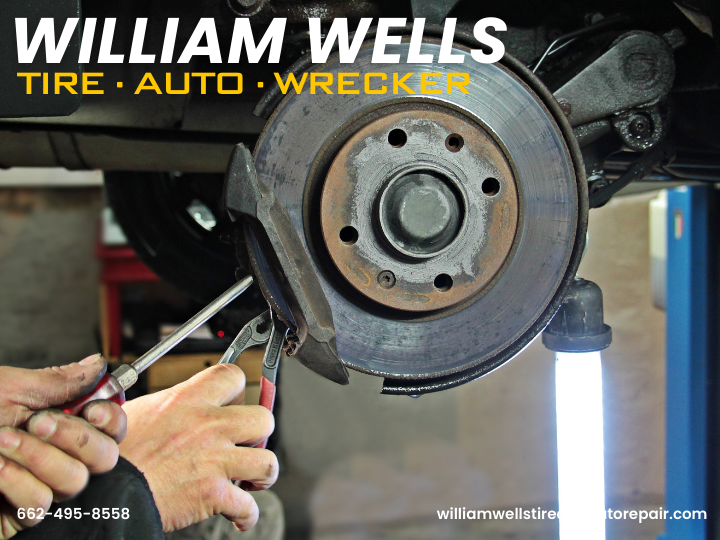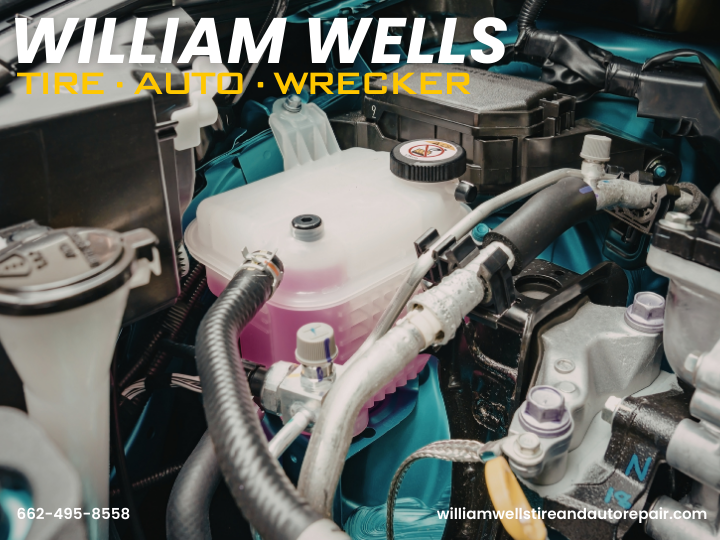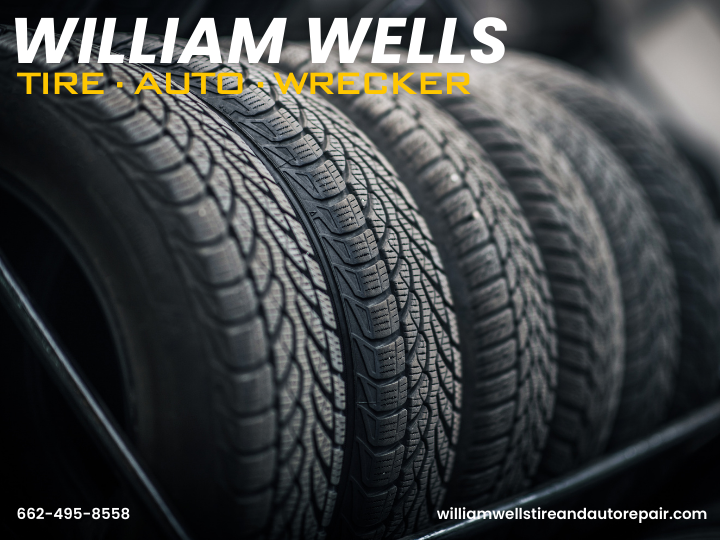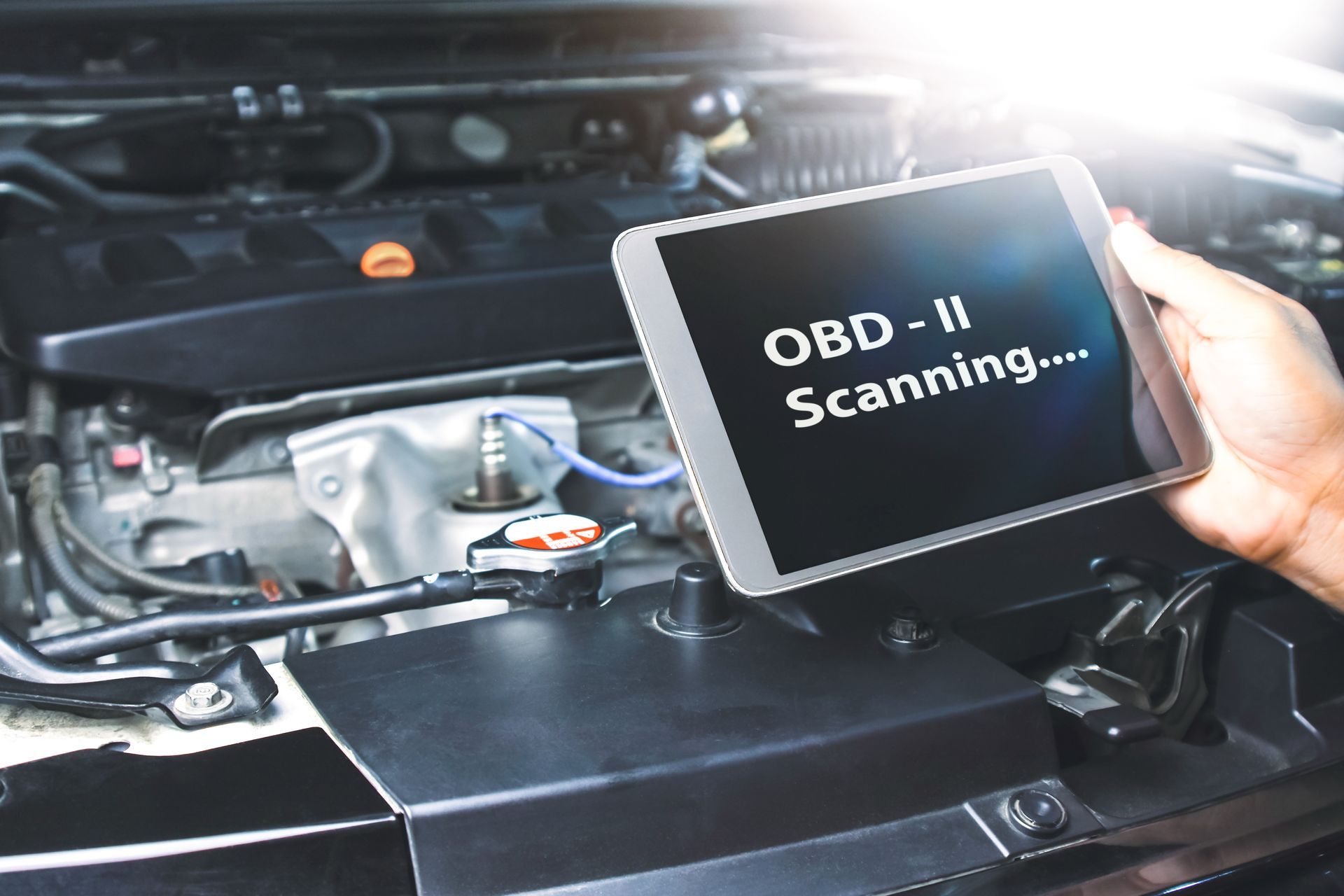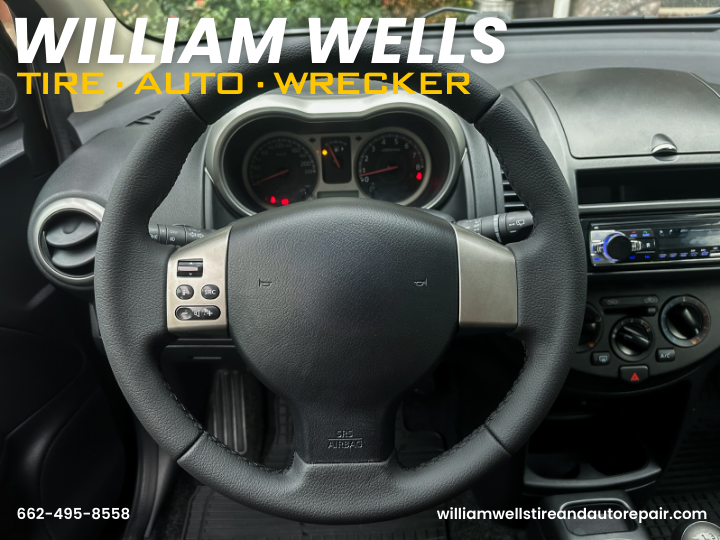Why is my truck misfiring?
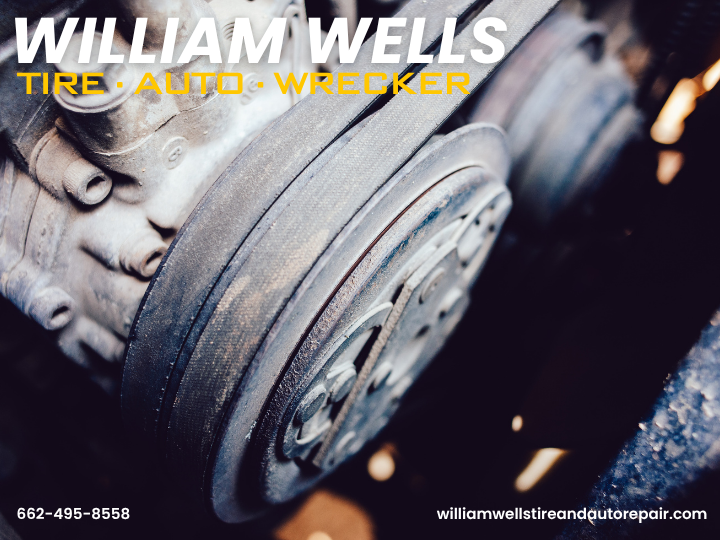
Why Is My Truck Misfiring?
That Shake, That Hesitation, That Flashing Light—It’s Not Just Annoying. It’s a Warning.
When your truck starts misfiring, it doesn’t just feel off—it is off. That shake at idle, stumble when you hit the gas, or flashing check engine light is your vehicle’s way of warning you: "There’s a problem in the engine—and if you ignore it, the damage will add up fast."
At William Wells Tire & Auto, we’ve diagnosed thousands of misfires across our locations in Starkville, Columbus, and West Point, MS. We know the difference between a simple fix and a serious issue—and we know how to find the real cause the first time.
What Exactly Is a Misfire?
A misfire happens when the fuel-air mixture inside one or more cylinders fails to ignite properly. That means incomplete combustion—or no combustion at all—which leads to:
- A loss of engine power
- Rough idle and poor performance
- Reduced fuel economy
- Increased emissions
- Potential internal engine damage if left unchecked
Your engine relies on precise timing between air, fuel, compression, and spark. When even one cylinder falls out of sync, the effects ripple across your entire system.
Signs Your Truck Is Misfiring
Whether it’s intermittent or consistent, a misfire almost always shows symptoms like:
- Shaking or vibrating when idling
- Hesitation when accelerating
- Sluggish towing or hill performance
- A flashing or steady check engine light
- Poor MPG and excessive fuel consumption
- Hard starts or random stalling
If your check engine light is flashing, that’s a sign of an active, severe misfire. It means unburned fuel is likely entering the exhaust system—and you need to stop driving and get help immediately.
The Most Common Causes of Truck Misfires
Misfires can be simple, complex, or catastrophic. The good news? Most are preventable when caught early. Here are the most frequent causes we diagnose at our Mississippi locations:
1. Bad Spark Plugs or Ignition Coils
Spark plugs don’t last forever. Worn plugs or failed ignition coils are the leading causes of misfires—especially in high-mileage trucks. Mississippi’s hot summers and humidity accelerate coil failure, especially when oil leaks or water intrusion are present.
2. Clogged or Weak Fuel Injectors
If fuel isn’t reaching a cylinder in the correct amount or spray pattern, combustion suffers. This usually causes a lean misfire, which is more likely to occur under acceleration or towing conditions. Poor fuel quality and ethanol-rich blends can increase the risk of injector fouling.
3. Vacuum Leaks and Air Imbalances
A leak in the intake system (cracked hoses, failed gaskets, faulty PCV valve) allows extra, unmetered air into the engine—throwing off the air/fuel ratio and leading to combustion issues. These often show up as misfires at idle or light throttle.
4. Sensor and Computer-Related Failures
Oxygen sensors, mass airflow sensors, cam/crank position sensors, and even outdated software can cause timing and fuel delivery issues that result in misfires. These can be hard to trace without live data monitoring.
5. Internal Engine Problems
If the misfire doesn’t go away after ignition and fuel components are checked, the issue might be deeper—low compression, valve leaks, worn rings, or a stretched timing chain. These are more serious, but catching them early can prevent catastrophic engine failure.
Why You Should Never Ignore a Misfire
A misfiring engine is not just running rough. It’s actively damaging itself:
- Catalytic converter meltdown: Raw fuel from misfires ignites inside the exhaust, overheating and destroying the converter.
- Oxygen sensor failure: Contaminated exhaust gases from misfires kill your sensors, leading to more drivability issues.
- Fuel economy drops fast: Even one misfiring cylinder can reduce fuel efficiency by 10–30%.
- Increased carbon buildup: Incomplete combustion creates deposits that wear out valves, piston rings, and combustion chambers.
- Total engine failure risk: The longer it runs misfiring, the higher the chance of internal damage—especially under towing or high-load driving.
Why Misfires Are Harder to Diagnose in Modern Trucks
Modern vehicles are packed with advanced technology—direct injection, turbocharging, cylinder deactivation, variable valve timing, and adaptive ECU systems. These features are great for power and fuel efficiency—but they also mask early symptoms of misfires.
Many trucks won’t show obvious signs until multiple systems are affected. That’s why generic code readers and parts-swapping won’t solve it. Proper diagnosis requires advanced equipment, in-depth knowledge, and real-world testing.
How William Wells Tire & Auto Diagnoses Misfires—The Right Way
At all three of our locations, we follow a proven, thorough diagnostic process to pinpoint the exact cause of the misfire before recommending any repairs:
- Advanced ECU Data Analysis
We read live misfire counts, freeze-frame data, sensor behavior, and fuel trims for a full picture of how your engine is operating. - Ignition System Testing
Using lab scopes, we analyze coil voltage, spark burn time, and plug condition—far beyond what a basic scan tool can see. - Fuel Pressure and Injector Testing
We test fuel pressure and inspect injector spray pattern and pulse width under idle and load conditions. - Vacuum and Intake Leak Testing
Smoke testing helps us find even the smallest air leaks that throw off combustion. - Compression and Mechanical Testing
If needed, we perform compression and leak-down tests to confirm internal engine health. - Road Testing with Live Monitoring
Some misfires only occur while driving. We simulate real-world conditions and monitor all systems in motion.
We don’t guess. We don’t “throw parts” at the problem. We find the real issue, explain it clearly, and fix it the right way.
Serving Drivers Across Starkville, Columbus & West Point
Whether you rely on your truck for commuting, farming, hauling, or weekend getaways—you can’t afford to drive with a misfire.
If something feels off, don’t wait. The sooner you catch it, the less it costs to fix—and the more you protect your engine, your emissions system, and your fuel mileage.
Schedule Your Misfire Diagnostic Today
William Wells Tire & Auto
📍 Starkville: 12919 MS-182, Starkville, MS 39759 | (662) 268-4081
📍 Columbus: 1625 Gardner Blvd, Columbus, MS 39702 | (662) 240-2414
📍 West Point: 93 W Broad St, West Point, MS 39773 | (662) 495-8558
🌐 https://www.williamwellstireandautorepair.com
Serving Mississippi drivers with diagnostic excellence, honest repairs, and trusted service—so your truck runs as strong as it should, mile after mile.
For more information please watch the video


